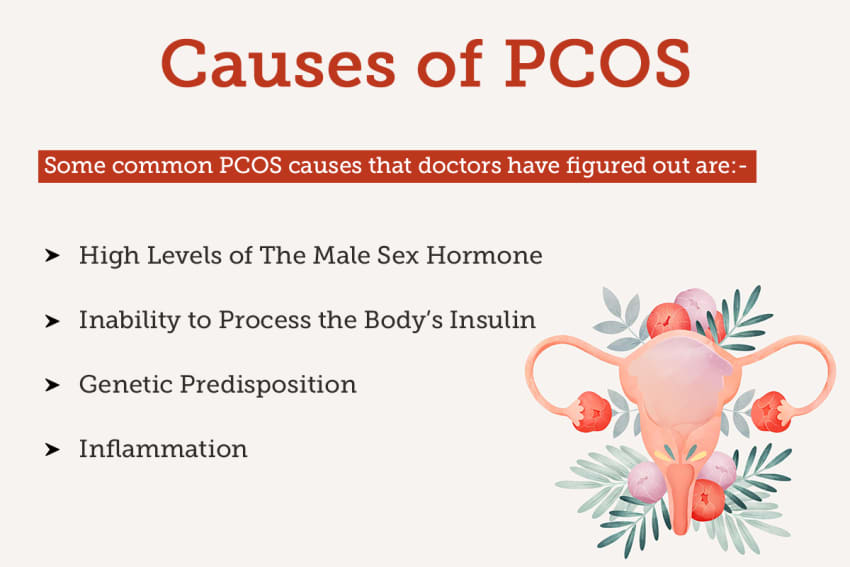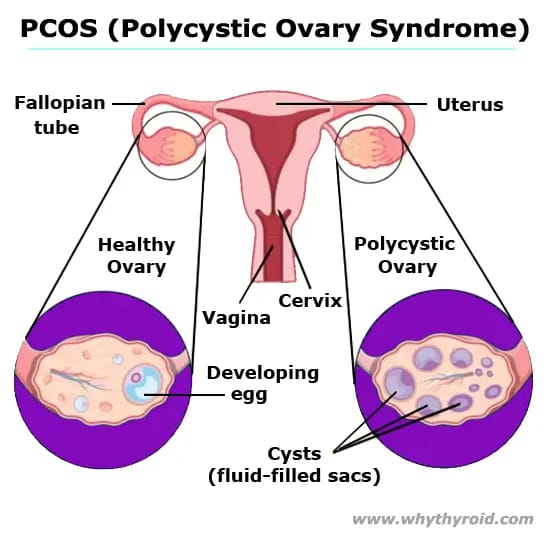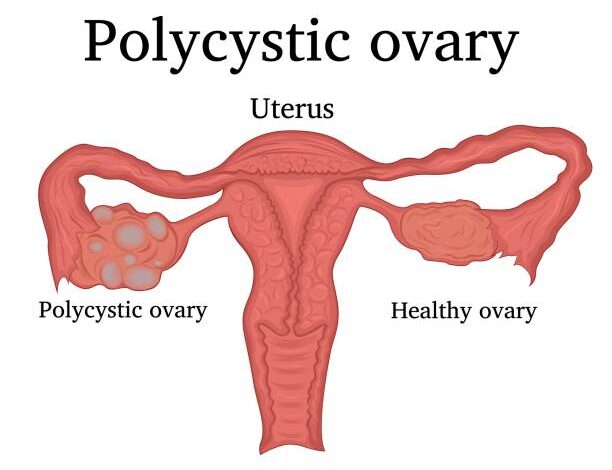Polycystic ovary syndrome (PCOS) is a hormonal disorder that affects up to 1 in 10 women of reproductive age. It is a common condition that can cause a range of symptoms, including irregular periods, weight gain, excessive hair growth, and acne. In this blog, we will discuss the causes, symptoms, and treatment options for PCOS.

Causes of PCOS:
The exact cause of PCOS is unknown, but it is thought to be related to insulin resistance and an overproduction of androgens (male hormones) in the body. Insulin resistance occurs when the body becomes less responsive to insulin, which can lead to high blood sugar levels and an increased risk of type 2 diabetes. High levels of androgens can cause many of the symptoms associated with PCOS.

Symptoms of PCOS:
The symptoms of PCOS can vary from woman to woman, but common symptoms include:
Irregular periods or no periods at all
Excessive hair growth (hirsutism) on the face, chest, or back
Acne or oily skin
Weight gain or difficulty losing weight
Infertility
Depression or anxiety
Treatment options for PCOS:
There is no cure for PCOS, but there are several treatment options available to help manage the symptoms. Treatment options may include:
Lifestyle changes: Eating a healthy diet, exercising regularly, and maintaining a healthy weight can help improve insulin resistance and reduce symptoms.

Medications: Birth control pills can help regulate periods and reduce androgen levels. Metformin, a medication used to treat type 2 diabetes, can also help improve insulin resistance.
Surgery: In some cases, surgery may be recommended to remove cysts on the ovaries.
Fertility treatments: Women with PCOS who are trying to conceive may benefit from fertility treatments such as ovulation induction or in vitro fertilization (IVF).
Psychological support: Women with PCOS may experience depression or anxiety as a result of their symptoms, and may benefit from psychological support or counseling.
In conclusion, PCOS is a common hormonal disorder that can cause a range of symptoms. While there is no cure, there are several treatment options available to help manage the symptoms and improve quality of life. If you suspect you may have PCOS, it is important to talk to your healthcare provider for an accurate diagnosis and to discuss treatment options.
Ankit Kumar (Bjmc II)









Leave a Reply
You must be logged in to post a comment.